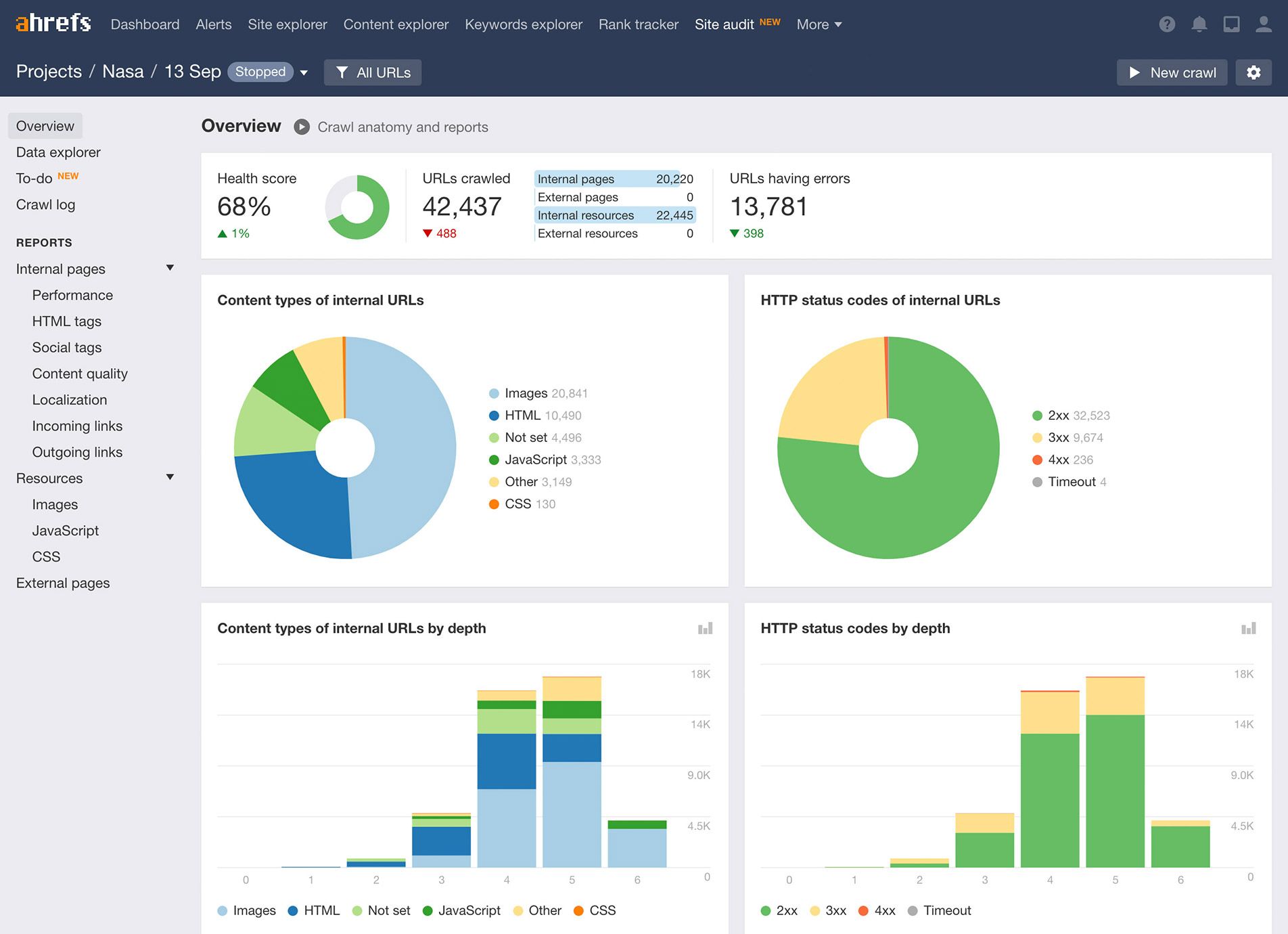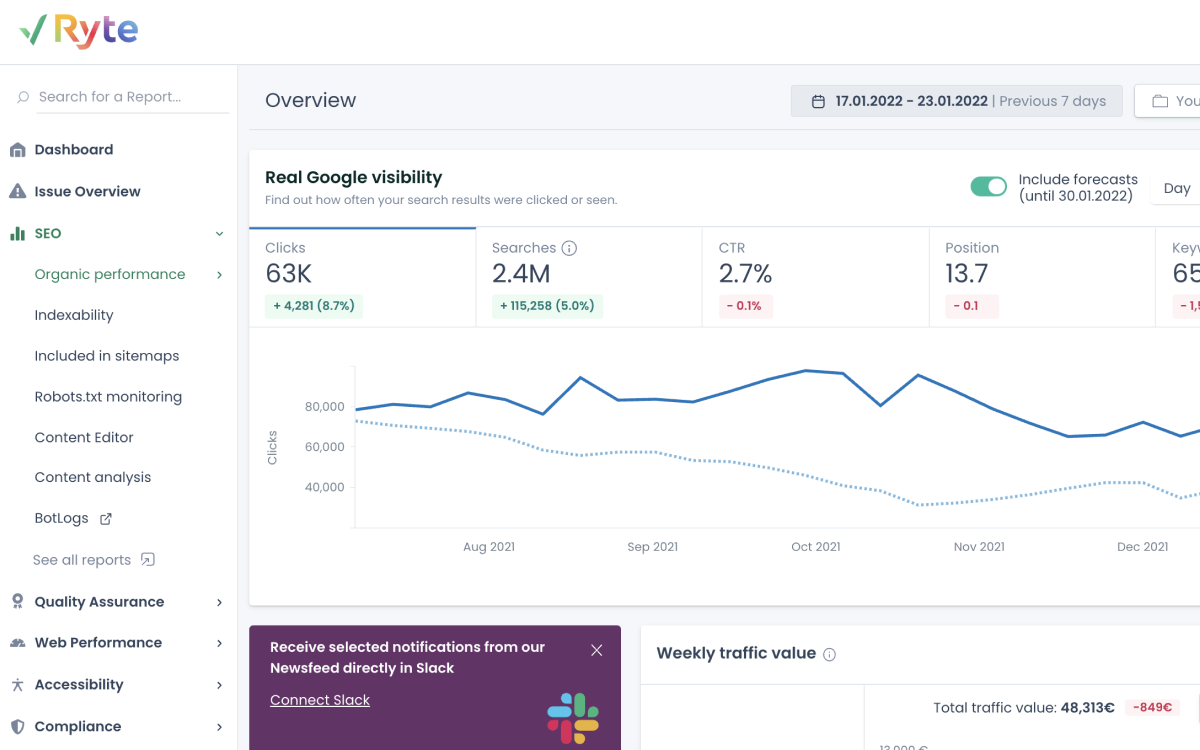SEO audits are essential for maintaining your website's health and ensuring high search rankings. But with so many tools on the market, how do you choose the right one for your business?
In this post, we'll dive deep into the top 8 SEO audit tools available in 2024. We'll compare their key features, capabilities, pricing, and use cases to help you make an informed decision. Plus, we'll walk through how to conduct an effective site audit and integrate the data with your other marketing efforts for maximum impact.
What Makes an SEO Audit Tool Great? A Checklist
Before we get into the specific tools, let's establish what separates the best from the rest. Here's what to look for:
- Comprehensive site crawling and indexing
- Technical SEO analysis (site speed, mobile friendliness, schema markup, etc.)
- On-page SEO checks (title tags, meta descriptions, header tags, content optimization)
- Internal and external link analysis
- Competitor benchmarking
- Keyword research and ranking data
- Intuitive interface and reporting
- Integration with other SEO and marketing tools
The 8 Best SEO Audit Tools
1. Ahrefs Site Audit

Ahrefs is a powerhouse in the SEO world, and its Site Audit tool is no exception. It offers:
- Lightning-fast site crawling
- Comprehensive technical SEO checks
- Intuitive issue prioritization
- Integration with other Ahrefs tools like Keywords Explorer
Pricing starts at $99/month, which may be steep for smaller sites. But for enterprises and agencies, the depth of data is worth it.
2. Semrush Site Audit

Semrush's Site Audit tool is another top contender. Key features include:
- Detailed crawl reports with issue explanations
- Progress tracking for site health over time
- Backlink audit to identify toxic links
- Integration with Semrush's expansive marketing toolkit
Pricing begins at $129.95/month. While not cheap, you get access to the full suite of Semrush tools.
3. Screaming Frog

Screaming Frog is the go-to desktop crawler for many SEOs. Its main strengths are:
- Highly customizable crawls
- Ability to crawl staging sites and non-public pages
- Excellent visualizations of site architecture
- Free version for smaller sites
Pricing for the paid version is $259.00/year, making it very affordable for the functionality.
4. Lumar (formerly DeepCrawl)

Lumar is an enterprise-grade tool built to handle massive sites. It boasts:
- Unmatched crawl speed and scale
- JavaScript rendering for accurate indexing
- Automated scheduling and change monitoring
- Flexible reporting and data visualization
As expected with enterprise tools, pricing is custom based on site size and complexity. But for large-scale sites, it's often the best option.
5. Moz Pro Site Crawl

Moz Pro's Site Crawl is a user-friendly tool for monitoring site health. Highlights include:
- Weekly crawls with easy-to-understand reports
- Issue explanations and fix recommendations
- Competitive link metrics through Moz's index
- 30-day free trial
Pricing starts at $99/month for the Standard plan, which includes basic crawling and keyword research.
6. Ryte

Ryte offers a comprehensive site auditing suite with some unique features like:
- Automated Google Search Console checks
- Hreflang validation for multilingual sites
- Content success analysis
- Integrations with Adobe Analytics and Google Analytics
Ryte has changed to an enterprise model, which means pricing is based on needs. Booking a demo is required for a custom price.
7. Sitebulb

Sitebulb is a powerful desktop crawler with some standout capabilities:
- Hint, a feature that suggests specific actions to fix issues
- Crawl Maps and Crawl Depth Maps for visualizing site structure
- PageSpeed Insights integration
- Free 14-day trial
Pricing starts at $13.50/month, making it very reasonable for the advanced functionality.
8. Google Search Console (Free)

While not as comprehensive as the paid tools, Google Search Console allows for reliable SEO insights and remains a must-use for every site. It offers:
- Indexing and crawling data straight from Google
- Core Web Vitals reporting
- Manual action notifications
- Basic keyword and ranking insights
As a free tool, it should be used alongside other auditing software for the most complete picture of site health.
How to Conduct an Effective SEO Audit
Now that you know the top tools, here's how to put them into practice:
- Crawl and index your site to identify any technical SEO issues like broken links, duplicate content, and crawl errors.
- Analyze on-page elements like title tags, meta descriptions, header tags, and content optimization. Make sure they align with target keywords.
- Evaluate your link profile for toxic backlinks and opportunities to improve internal linking.
- Check Core Web Vitals and overall site speed and performance.
- Prioritize and implement the audit recommendations, focusing on the highest impact items first.
- Set up ongoing monitoring and reporting to track progress over time.
Follow this detailed guide to run your own SEO audit. It allows for deeper explanations of each step and what you might consider during the process.
Integrating SEO Audit Data with Other Marketing Efforts
SEO doesn't exist in a vacuum. To get the most value from your audits, integrate the findings with your other marketing channels:
- Use content gaps and keyword insights to inform your content marketing strategy
- Apply technical fixes and speed optimizations to improve UX and conversion rates
- Leverage competitor insights to optimize paid search campaigns
- Set up dashboards to share key metrics across teams
Using Competitive Intelligence to Complement SEO Audits
Auditing your own site is crucial, but don't forget about your competitors. Tools like SpyFu allow you to:
- Analyze competitors' keywords, rankings, and backlinks
- Identify content gaps and link building opportunities
- Track market share growth over time
- Benchmark your performance against industry leaders
Conclusion
Choosing the right SEO audit tool is a critical decision for your business. Whether you need the enterprise power of Lumar, the all-in-one functionality of Ahrefs or Semrush, or the affordability of Screaming Frog, there's an option out there for you.
Just remember, an audit is only as valuable as the actions you take afterward. Use your tool to identify issues and opportunities, then implement changes to drive real results. And don't forget about competitors - tools like SpyFu can give you the extra edge.
Now it's time to take action. Choose your tool, run your first audit, and start optimizing for SEO success in 2024!

